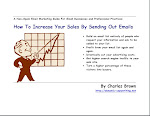If you want to write better ads, marketing materials or web content, the best place to start is by studying the successful ads written by others. And I can think of no better place to start than the most famous ad in history.
In the mid 1920s, a recent Naval Academy graduate with a degree in electrical engineering was looking for work. The post-war military was downsizing and John Caples had been offered the option to forego his commission as an ensign in the Navy.
His first job was as an engineer, but he found it completely boring. Looking again, he landed a job as a copywriter with a mail order agency. One of his first assignments was to write an ad for a correspondence course offered by the U.S. School of Music.
John produced four pages of copy that began with the headline, “They Laughed When I Sat Down At The Piano – But When I Started To Play …”. Following this headline came a first person narrative by a man who impressed all his friends (and silenced his scoffers) at a party by his new-found ability to play the piano.
The ad became an instant success. Not only did it pull in record-breaking sales, the headline became part of the culture. Vaudeville comedians spoofed the ad with punchlines like, “…because someone stole my piano stool.” Other copywriters borrowed the formula, and spun it into countless imitations.
And even today, you will see imitations.
But what made 25 year old John Caples’ ad so successful? There are several factors:
- He used a story to sell his product. Stories are powerful. They help us to understand and believe in a way no other communication device can. When we hear a story, we feel a part of it and adopt the emotions of the character.
- The main character silences those who laughed at him. Who doesn’t want to put our critics in their place. The party scene in the ad shows this man as the center of attention because of his musical skills. Again, who doesn’t crave that kind of admiration from our friends?
- The ad offers self improvement. Not only does it show how to acquire the ability to play the piano, but it improves his social life as well. The benefits offered go far beyond mere musical instruction, they offer status.
- Social proof. Even though everyone realized this character was fictional, the ad still made learning to play the piano seem easy. This is the power of social proof, which demonstrates to us that if someone else can do it (even a fictional person) we can do it as well. You can learn more about how to use social proof to write persuasive copy at Freelance Copywriter Secrets: Social Proof-An Awesome Copywriting Tool.
- The ad is a two-step ad. This means the reader doesn’t have to make the decision to buy right away, he or she can send in a coupon and request information. 2-step ads lower the bar and require a smaller commitment. Check out a recent article on 2-step ads at Freelance Copywriter Secrets: Why 2-Step Ads Make More Sales.
- Best of all, the information offered is Free. There is power in that word. In a 2-step ad, the inquirer can be curious and get answers without paying a cent. But the seller benefits because the inquirer has “opted in” to receive follow up information (ie sales letters) to cement the sale at a later date.
No doubt you have either seen, or will see again, one of Caples many imitators. When a formula works this well, other copywriters inevitably make it their own.
COPYRIGHT © 2006, Charles Brown

Labels: advertising, direct response, info products, storytelling



I chanced upon to view your blog and found it very interesting. Great ... Keep it up!
Market Research Services said...
7:13 AM